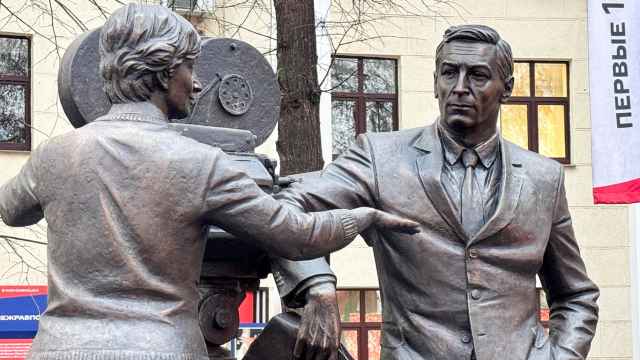As the saying has it, what goes around comes around.
What prompts this small outburst of folk wisdom is a letter that arrived in my Facebook mailbox. It came from upstate New York, a response to a blog I originally published about the scholars and publishers Carl and Ellendea Proffer and the poet Joseph Brodsky.
That is the "how" of this little tale. The "who" is the authors of the letter, Gene and Gloria Donen Sosin.
Gene is the former director of broadcast planning at Radio Liberty and the author of "Sparks of Liberty: An Insider's Memoir of Radio Liberty." His wife Gloria is a writer, teacher and translator whose books include "Red Letter Year: Munich 1950-51," a memoir of a year she and her husband spent interviewing Soviet immigrants for the Harvard Refugee Interview Project, and "A New Life Is Coming Soon, the Story of My Father, Isaac Donen."
All of which brings us to the "what" of what I am up to today. The Sosins wrote to me about one particular encounter they had with Brodsky after he arrived at the University of Michigan at Ann Arbor in 1972. It captures a single moment of discovery and calls to mind a vivid and very human picture of the great poet sitting on the edge of his bed, dumbfounded by what he has just learned.
Here are the relevant excerpts from the letter signed by both Sosins, but evidently written by Gloria.
"John Freedman's article about Ann Arbor, the Proffers and Joseph Brodsky caught our eye today. Shortly after his arrival in the United States, my husband and I had the pleasure of meeting him and talking with him at length when he was teaching in Ann Arbor, at the University of Michigan, my alma mater, and also that of [my] sister and both our children.
"He was delighted to converse with us in Russian although his English was excellent. When we entered his small dormitory room, he was reading a letter from the Soviet Union. I asked to see the envelope, tore it open at the seam and showed him a tiny numerical imprint, the mark of the censor, something he had never seen before. I told him that I correspond with relatives in Russia and that a Russian emigre friend had pointed out to me the censor's mark on the envelope — an imprint or stamp. We showed him the censor's imprint embossed on the inner flap and visible only when the envelope is torn open. He could not believe his eyes.
"The next day the room was filled with cigarette smoke, and Brodsky was sitting on the bed surrounded by countless envelopes. He looked tired and disheveled. He'd spent the whole night searching for those minute numbers and suspected that even in exile he was being monitored."
A Message from The Moscow Times:
Dear readers,
We are facing unprecedented challenges. Russia's Prosecutor General's Office has designated The Moscow Times as an "undesirable" organization, criminalizing our work and putting our staff at risk of prosecution. This follows our earlier unjust labeling as a "foreign agent."
These actions are direct attempts to silence independent journalism in Russia. The authorities claim our work "discredits the decisions of the Russian leadership." We see things differently: we strive to provide accurate, unbiased reporting on Russia.
We, the journalists of The Moscow Times, refuse to be silenced. But to continue our work, we need your help.
Your support, no matter how small, makes a world of difference. If you can, please support us monthly starting from just $2. It's quick to set up, and every contribution makes a significant impact.
By supporting The Moscow Times, you're defending open, independent journalism in the face of repression. Thank you for standing with us.
Remind me later.






